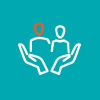The (urban) challenge of providing services to migrants and refugees
Cities in Europe find themselves in a central position regarding the social, humanitarian and financial challenges related to reception, housing, schooling, training, and working opportunities for newcomers. Cities are places where both migrants and non-migrants interact, be it through working, studying, living or raising their families.
Effective inclusion policies are mostly put into place at city level to ensure that local and regional benefits are unleashed, including support in finding jobs, housing, social services and education. Cities are also providing access to language classes and volunteering positions in institutions and businesses.
Given that refugees can have high levels of qualifications and skills, programmes are established by local governments that enable skills and qualification recognition. To help refugees with a low skills profile into the labour market, more financial support for training and qualification is needed. Migrants with good chances to access the labour market can bring new skills and experiences and contribute to the sustainable and inclusive growth of cities.
Working Conference Berlin: finding solutions for work and education
The Partnership wants to consult with experts from different professional backgrounds to come to promote the integration of migrants and refugees into European labour markets and education systems. To achieve this, the Partnership organised its second working conference, hosted by the Partnership member Berlin, on 16 and 17 February 2017.
The conference was the second in a row of three conferences the Partnership organises (see here a recap of the first conference held in November 2016). It assembled participants from different professional backgrounds, from academics to representatives of civil society initiatives and professionals with hands-on experience.
Prominent guest speakers such as the Governing Mayor of Berlin, Michael Müller, the Berlin Senate Commissioner for Integration and Migration, Andreas Germershausen, the President of the Chamber of Skilled Crafts Berlin, Stephan Schwarz, and the Founding Director of MPI Europe, Elizabeth Collet, enriched and fuelled the discussion with their keynote speeches.
The Migration Policy Institute (MPI) Europe had provided two Scoping Papers on work and on education of migrants and refugees beforehand (find them in the Library). Based on the bottlenecks defined in these papers, participants worked in four parallel workshops on the sub-topics ‘changes in demand’, ‘integrated service needs’ (related to education), ‘employer engagement’, and ‘migrant entrepreneurship’ (related to labour market).
Some of the recommendations emerging from the workshops were:
- Make better use of the EIF/EaSI mircofinancing instrument to overcome immigrant-specific barriers to entrepreneurship.
- Combine different streams of funding for integrated services to achieve a more holistic approach to service provision and to funding.
- Provide cities and local authorities with direct access to funding, i.e. making part of the AMIF fund resources directly available to cities in relation to expenditures concerning refugee inclusion.
The detailed results from the workshops are available in this report.
Follow-up
The upcoming Working Conference will build largely on the input and experiences of migrants and (former) refugees, and will take place on 17 May 2017 in Amsterdam, the Netherlands. Interested people with a migrant or refugee background who would like to share their migration experiences are asked to contact Mr Remie Kariem (R.Kariem@amsterdam.nl) for more information.
- Zaloguj się, aby zamieszczać komentarze

